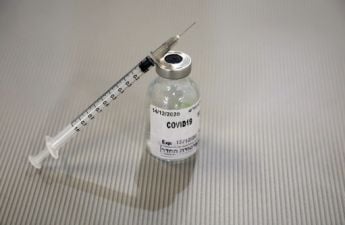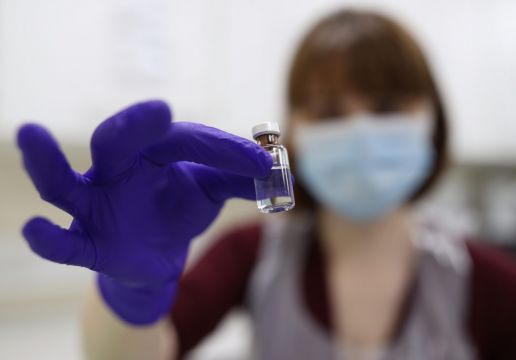The pandemic has brought the spread of misinformation or 'fake news' more sharply into focus than ever before in Ireland.
False or inaccurate information has come in different forms throughout the year, from viral WhatsApp messages claiming the army would be deployed on Irish streets in March, to anti-vaccination leaflets distributed in Dublin in December.
Concerns have been raised that misinformation could impact the uptake of a Covid-19 vaccine, with work already underway on a strategy to tackle vaccine scepticism.
However, Irish academics are now cautioning that exposure to misinformation or fake news may not necessarily translate to real-world consequences.
“I think it's one of the few topics remaining where people really get away with just making assumptions about the effects without ever actually quantifying them,” Associate Professor at UCD’s School of Psychology, Dr Ciara Greene said.
Dr Greene and her colleague Dr Gillian Murphy from UCC’s School of Applied Psychology are among the only academics currently studying the real-world consequences of misinformation within Ireland.
Surprising results
“Like everybody else, we were just sort of assuming that remembering or believing or sharing the information was bad, because it must have downstream behavioural consequences. And then we realised oh well, actually nobody's really investigating that,” Dr Greene said.
“We are not suggesting that [there’s] nothing to see here, there's no problem with fake news. We're just saying we actually do need to go about looking into it and quantifying it.”
The researchers have reported surprising results in their first large study of almost 4,000 participants, which evaluated the effect of being exposed to a 'fake news' story on a person’s intention to behave in a certain way — such as opting to receive a Covid-19 vaccine.
“[We looked at] things like if you see a fake news story that says there's a problem with the contact tracing app, will you be less likely to download that app, or if you see a story saying, ‘drinking coffee protects against coronavirus,’ will you drink more coffee,” Dr Greene said.
“It's difficult to actually measure people's behaviours — to go follow them around the kitchen and see how much coffee they're drinking,” she added. “So the first step was to say, well do they intend to drink more coffee.”
The researchers were surprised to find that some of the 'fake news' stories they exposed participants to had “absolutely no effect at all” on their behavioural intentions.
“Other ones — when they did have effects — the effects were really very small,” Dr Greene said.
Ineffective warnings
“In some cases they did alter their behavioural intentions — so people who saw the story about the contact tracing app did say that they were a little bit less likely to download [it]. But those effects were a lot smaller than we thought they would be.”
With their study investigating the impact of one-off exposure to fake news, Dr Greene said the researchers are now turning their attention to the effects of longer-term exposure on behaviour.
“We do have other evidence that when you see a story more than once, [that] can increase its believability and how truthful you think it is. So we're going to look into that,” she said.
The fact-checkers just can't keep up with it.
The researchers are also trialling different “interventions” to reduce the effects of misinformation — finding some commonly-used methods to be “absolutely” ineffective.
“With something like the Covid pandemic, fake news is being produced at such a fast rate it really is going very fast, the fact-checkers just can't keep up with it,” Dr Greene said.
“By the time they get around to debunking the story, a thousand people have already read it, so it's too late.”
The researchers furthermore found that generic warnings — such as radio campaigns warning of the prevalence of fake news — had little effect on study participant’s beliefs or behaviour.
“[We found those warnings] didn't affect whether they believed in the stories it didn't affect their behavioural intentions. Absolutely nothing, had no effect at all,” Dr Greene said.
We're all susceptible to misinformation at different times.
With fact-checking and generic warnings seemingly having little impact, the researchers found “cognitive interventions” — or encouraging people to think more analytically — may be the most effective tool to lessen the impact of false information.
“We're all susceptible to misinformation at different times and we're more susceptible to misinformation that lines up with what we already believe to be true,” Dr Greene said.
“We want to try and nudge people away from the quick reflexive thinking into the slower more reflective thinking,” she added.
“The goal is to give them the tools to allow them to critically evaluate information, to empower people when they're reading news to be able to stop and go: wait, is this accurate.”
Government mistrust
With one of the dominant narratives surrounding Covid-19 vaccine scepticism revolving around mistrust in the governments and developers offering them, Dr Greene said bridging the gap will take transparency.
“Saying to people ‘you just have to take the vaccine and that's all there is to it’, that kind of action just doesn't work, people react against it, they feel infantilised,” she said.

“What we want to do is to try and bring people along with us. So it really is about trying to be as transparent as possible and making sure that people have clear, easy to understand information, and that they don't feel that anything's being hidden from them.”
When it comes to one survey finding a third of people in Ireland are unsure about receiving a Covid-19 vaccine, Dr Greene is not too concerned.
“Somebody’s answers on a questionnaire don't necessarily map onto their behaviour, so I think we need to be aware of that and I think sometimes we can nearly feed into this by saying ‘loads of people are unsure, and therefore you should be too.’
“It's worth knowing what are people unsure about: are they saying ‘the safety information hasn't been released yet,’ which is perfectly valid, or are they saying ‘I think there's a conspiracy to vaccinate us all against our will’? Those are very different things.”







